When Do Babies Hold Their Own Bottle? Age & Tips to Help
While most mothers find feeding their babies is a good time to bond, there comes a time in every baby’s life when he will want to learn to start holding his bottle on his own. Most often, this happens once he has reached a certain point of development, typically around six to ten months of age. You can always help your baby along by encouraging him to start becoming more self-sufficient at feeding time. For instance, when you notice your baby holding a bottle at 3 or 4 months, gently guide his hands to ensure a proper grip. This milestone not only fosters independence but also strengthens fine motor skills, making it an important step in your baby’s growth journey.
When Do Babies Start Holding Their Own Bottle?
At what age do babies hold their own bottle? You may be wondering, “When will my baby hold his bottle?” and the answer is: anywhere from four months up to ten months of age. It all depends on when his fine motor skills begin to develop. However, the average age at which a baby starts holding his bottle is when he is six months of age (1).
Signs Baby is Ready to Hold the Bottle on His Own
Observing your baby carefully will give you clues as to whether or not he is ready to start holding that bottle. Here are some to look out for:
1. Reaching for It
Not only does reaching out for the bottle show that your baby is able to make the connection between his bottle and food, but also that he is interested in it.
2. Sits Up Longer
If your baby is not yet able to sit up, then he cannot hold his bottle yet as it requires him to use his fine motor skills. All of this requires him to sit straight by himself for a period of time.
3. Sits and Gnaws
Your baby is multitasking when he gnaws on something while sitting down. This is something he needs to be able to do as she holds the bottle and drinks from it at the same time.
Why Do Babies Start Holding Their Own Bottle?
As babies grow, they naturally begin to explore their independence, and one of the key milestones in their development is learning to hold their own bottle. Below, we explore the reasons behind this developmental milestone.
1. Development of Fine Motor Skills
As babies grow, their hand-eye coordination and fine motor skills improve, allowing them to grasp and hold objects more effectively (2). Holding a bottle requires precise control of their fingers and hands, which develops over time through practice and repetition.
2. Desire for Independence
Babies are naturally curious and eager to explore their abilities (3). Holding their own bottle is a way for them to assert their independence and take control of their feeding process, which can be both empowering and satisfying for them.
3. Cognitive and Physical Milestones
Around six to ten months of age, babies reach a stage where they become more aware of their surroundings and their own capabilities (4). This cognitive development, combined with increased physical strength, enables them to hold and manipulate objects like bottles more effectively.
How to Teach Your Baby to Hold His Bottle
It can be very helpful if your baby can hold his own bottle, but even if he can’t, you can always help him along by teaching him how. Here are some ways you can teach him:
1. Don’t Rush
Wait for the right time to start teaching your baby to hold the bottle. Your baby needs to be physically developed enough to hold his own bottle and bring it to his mouth, which requires some coordination.
2. Show Your Baby What to Do
Hold your baby’s hands to the bottle as you feed him to show him how it is done (5). Hold the bottle with one hand and then with your other, place the baby’s hands on the bottle.
3. Watch Your Baby’s Reaction
Observe your baby’s reaction when you feel that he can handle holding the bottle independently. When you remove your hands, he should be able to hold on to it for at least a little while; if not, he will then notice that he is not getting any milk. Reposition the bottle and watch. Soon, your baby will make the connection and understand that holding the bottle a certain way lets him get the milk.
4. Hold Your Baby
Always hold your baby in your arms as you normally would while bottle-feeding him when you are teaching him how to do it. This will help him retain the sense of security and comfort that he normally has while feeding.
5. Follow Your Baby’s Progress
Be observant towards your baby while you teach him how to feed himself. Initially, you will need to hold your baby’s elbows up so that the bottle is positioned correctly. Soon enough, your baby is going to be holding that bottle all by himself.
Why Should You Stay Away from Bottle Propping
It is not ideal to simply prop the bottle up to the correct angle to feed your baby and leave it at that. This is extremely dangerous as your baby may choke or overeat. Babies are also at risk of tooth decay or ear infections if they fall asleep with the bottle in their mouth.
If a baby is unable to sit straight by himself and hold the bottle, it is a clear indication that he is not ready to hold his bottle on his own in the first place.
Tips to Help Your Infant Hold His Bottle
Here are a few handy tips to help make teaching your baby to hold his bottle flow smoothly:
1. Have Patience
Be patient with your baby as you teach him. Learning to coordinate bringing the bottle to his mouth is hard.
2. Cuddle Time
Babies and mothers both enjoy the bond between them during feeding time, so keep holding your baby while you teach him. Even if your baby can feed on his own, it is still a good idea to cuddle him as he does.
3. Keep Supporting
Though your baby may be able to hold the bottle, keep supporting him in the beginning.
4. Watch Carefully
While your baby learns, you need to keep a careful eye on him to see how well he is doing and if he is able to feed himself properly.
5. Listen Well
A lot of suckling noises from your baby may mean that he is taking in more air than he should be. Help him out here by repositioning the bottle or holding the baby’s head up a little bit.
6. Do Not Force
If your baby is not able to hold the bottle by the average age, do not worry and do not force it on him. He may not yet have developed the required skills needed. This is perfectly normal for a lot of babies.
Precautions to Take While Your Baby Holds the Bottle
While you may think that your infant holding a bottle on his own means you get to do other things during that time, think again. Your baby is still too young to fully understand how to cope with the situations that may arise during feeding. For example, if his bottle is propped wrong, there might be too much milk coming through.
1. Avoid Leaving Your Baby Alone
Just because your little one is capable of holding his own bottle, you should not leave your baby alone (6). Babies tend to drop things very easily and if your baby drops his bottle and you are not there to help him, he may end up going hungry. Worse, he may try and get the bottle himself, possibly falling down. If he is somewhere high, like in his chair or on a sofa, this can have disastrous circumstances.
2. Do Not Prop the Bottle
Propping the bottle has many disadvantages, as discussed earlier. It leads to overeating and the possibility of choking.
3. Don’t Feed Your Baby Lying Down
If you keep your baby lying down during feeding time, your baby will develop ear infections. This is because the milk or the formula can flow into the Eustachian tubes of his ears and may remain there, causing an infection.
4. Bond Deprivation
Holding your baby while he feeds provides him with a sense of security and strengthens the bond. This is why you need to continue to hold your child even if he can hold his bottle by himself.
5. Use Appropriate Feeding Gear
Using the correctly shaped nipples can help with positioning the tongue properly. However, using a nipple that allows too much to get through may cause your baby to have difficulty coping and may cause him to choke.
Is It a Problem if the Baby is Not Holding the Bottle
Keep in mind that each baby will develop at his own pace. This developmental pace will also determine at what age babies start holding their own bottles. As long as he reaches his developmental milestones and you know there is nothing physically wrong with your baby, it really is not a problem. If your baby is not holding the bottle yet, you can always try giving him a sippy cup as the handles on those are much easier for your baby to hold.
What’s the Next Milestone After Baby Holding the Bottle?
Once your baby masters holding their own bottle, it’s a sign they’re progressing well in their developmental journey. This achievement opens the door to a series of new milestones like the ones below that further enhance their independence and physical abilities.
1. Self-Feeding with Finger Foods
After holding their bottle, babies often begin to show interest in self-feeding. This usually starts with picking up and eating finger foods, such as small pieces of fruit or soft vegetables. This milestone helps improve their hand-eye coordination and encourages independence during mealtime.
2. Drinking from a Sippy Cup
Transitioning from a bottle to a sippy cup is another significant step. This milestone typically occurs between nine and twelve months of age and helps babies develop their oral motor skills while preparing them to eventually use regular cups.
3. Improved Crawling and Walking
As babies grow stronger and more confident, they often progress from crawling to pulling themselves up and eventually walking. These physical milestones are closely linked to their overall development, including the strength and coordination they gained from holding their bottle.
FAQs
1. Can holding a bottle too early affect my baby’s development?
Some parents wonder if encouraging their newborn in holding a bottle too early might hinder their natural development. While it’s important to follow your baby’s pace, gently introducing the idea of holding a bottle when they show interest is generally safe. However, forcing the skill before they’re ready could lead to frustration or disinterest. Always watch for cues that your baby is developmentally prepared.
2. What if my baby prefers holding the bottle with one hand?
It’s not uncommon for babies to favor one hand over the other when holding their bottle, which might make parents wonder if this is a sign of handedness (left or right dominance). While this could be an early indication, most babies don’t fully establish handedness until they’re two to three years old. As long as your baby is comfortably feeding, there’s no need to worry.
3. Why does my baby hold the bottle but refuse to drink from it?
Some babies may enjoy holding their bottle as a way to explore and play but refuse to drink from it. This behavior could be due to teething discomfort, a lack of hunger, or simply curiosity about the bottle as an object. If this happens consistently, try offering the bottle at different times or ensuring your baby is in a calm, distraction-free environment during feedings.
Teaching your baby how to hold his own bottle will require patience from you, but your baby will get it eventually. Some get it really quickly, while others lag behind. It is imperative for your baby to grow and develop well. Continue to bond with your baby by holding him in your arms, whether or not he has mastered holding his bottle, as this time you and your baby share together will help him gain a sense of warmth and security.
References/Resources:
1. First Year Infant Development; American Pregnancy Association; https://americanpregnancy.org/healthy-pregnancy/first-year-of-life/first-year-infant-development/
2. Fine motor skill development: Birth to 2 years; Children’s Hospital of Richmond at VCU; https://www.chrichmond.org/services/therapy-services/developmental-milestones/fine-motor-skills-birth-to-2-years/
3. Twomey. K, Westermann. G; Curiosity‐based learning in infants: a neurocomputational approach (Developmental Science); National Library of Medicine; https://pmc.ncbi.nlm.nih.gov/articles/PMC6032944/; October 2017
4. Your baby’s developmental milestones at 6 months; UNICEF; https://www.unicef.org/parenting/child-development/your-babys-developmental-milestones-6-months
5. Infant development: Milestones from 4 to 6 months; Mayo Clinic; https://www.mayoclinic.org/healthy-lifestyle/infant-and-toddler-health/in-depth/infant-development/art-20048178
6. Bottle feeding advice; NHS; https://www.nhs.uk/conditions/baby/breastfeeding-and-bottle-feeding/bottle-feeding/advice/
Also Read:
Bottle Feeding Problems and Solutions
Choosing the Right Bottle for your Baby
Advantages and Disadvantages of Bottle Feeding
Was This Article Helpful?
Parenting is a huge responsibility, for you as a caregiver, but also for us as a parenting content platform. We understand that and take our responsibility of creating credible content seriously. FirstCry Parenting articles are written and published only after extensive research using factually sound references to deliver quality content that is accurate, validated by experts, and completely reliable. To understand how we go about creating content that is credible, read our editorial policy here.






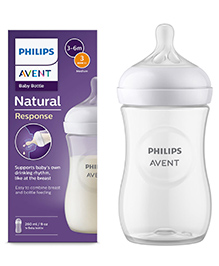
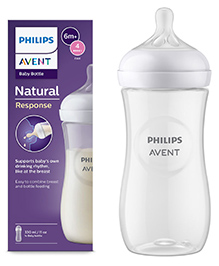
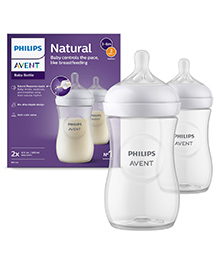
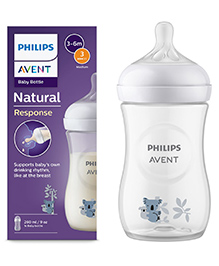
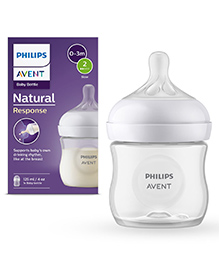

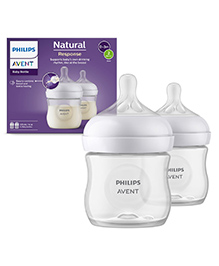





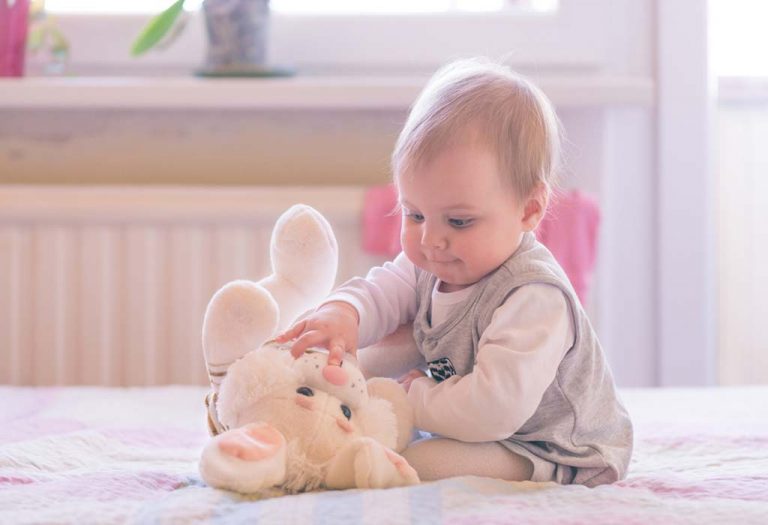


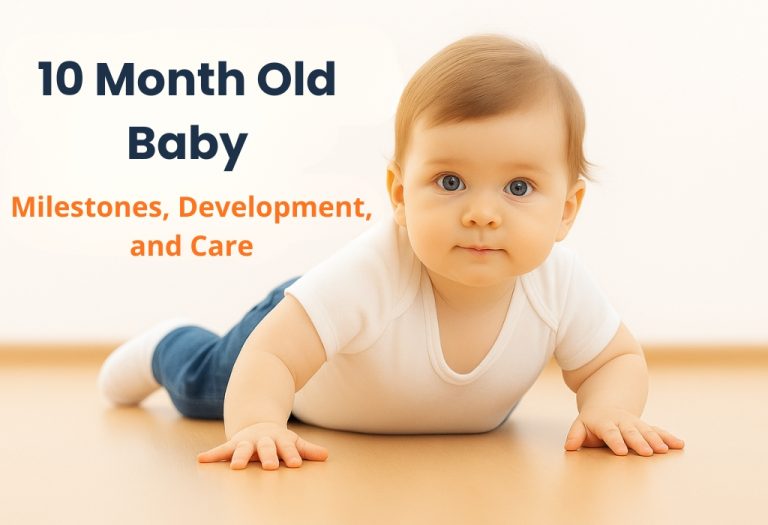



.svg)


















